One of the richest championships in the world has again invested massively this summer. Its clubs, although heavily in debt, are financially supported by the State.
It is almost the only UEFA championship whose clubs spend more than they sell, with the exception of the English Premier League. With a balance of transfers in deficit of more than 100 million euros for two years, this championship has benefited for years from a policy of massive investment by the State in football, in line with Saudi Arabia. Clubs can therefore recruit players for very high transfer amounts and offer salaries that defy all competition in Europe. They have again attracted big European players this summer, despite disappointing results in the European Cup and only one club in the Champions League each year.
This championship is the Süper Lig, the Turkish championship. During the last transfer window, Turkish clubs again recruited many foreign stars, like Galatasaray's XXL transfer window. The salaries offered are each time very high: the recruitments of Icardi, Ziyech, Zaha, Tête and Demirbay would thus cost nearly 28 million euros annually for Galatasaray, which is equivalent to the total payroll of a club like FC Port. However, the championship's TV rights have fallen since the last contract signed last summer by the league is for only 370 million, compared to 500 million for the previous one.
First explanation: Turkish clubs are largely favored fiscally. Where football players' salaries are taxed at more than 50% in France and the majority of large European countries, it is only 15% in Turkey. This fiscal particularism increases the attractiveness of the championship to European players. But this has a cost for the Turkish state: the total wage bill of the country's clubs is between 250 and 300 million euros, taxing these salaries so low corresponds to an investment of almost 100 million euros per year in football from the government. According to the current exchange rate, the annual shortfall of a tax of 15% compared to a rate of 50% is therefore almost 3 billion Turkish liras for the State.
And Turkey's massive investment in football is not a new strategy: in 2007, Galatasaray built its new stadium entirely with public funds. It was the public housing construction company TOKI which bought the site of the former Ali Sami Yen stadium to build the new 53,000-seat enclosure. Recep Tayyip Erdoğan, then Prime Minister, himself said: "Galatasaray did not spend a cent on the construction of the stadium. Our investments in the stadium amount to 600 million Turkish liras (350 million euros according to the exchange rate at the time).
However, the country's major clubs are all heavily in debt. According to economist Kerem Akbas, author of a book on Turkish football finances interviewed by AFP, the four big clubs (Beşiktaş, Fenerbahçe, Galatasaray, Trabzonspor) had two billion euros in debt between them at the time. end of August 2023. “In every transfer window, the teams are essentially managed by fans through social media,” explains Mr. Akbas. "Clubs are in a difficult financial situation due to pressure from fans and the management's quest for fame... The government allows it. Otherwise, with these financial situations, the clubs would have gone bankrupt a long time ago."
According to a former Turkish club director, interviewed by The Guardian, the clubs are in such poor financial health that the state must artificially guarantee their survival: "All the big clubs are listed on the stock exchange. If it were others companies, they would have been deregistered and would have gone bankrupt years ago. But because of the social implications and the popularity of football, all these clubs are 'too big to fail'."
Turkish clubs continue to recruit expensive stars at the end of their careers to attract fans, despite dire finances. The State has always come to their aid, guaranteeing very low rates thanks to a network of public banks for example.
To fully understand this state investment in football, we must understand the social importance of this sport in Turkey. If most fans of Istanbul clubs are atheist city dwellers, often opposed to the President of the Republic Recep Tayyip Erdoğan, football has its importance in all fringes of Turkish society and is an important tool of power in the country. In the columns of Libération, a former manager of Fenerbahçe confides: "Since the military coup of 1980, football has become the hard core of nationalist ideology. Whatever the regime, the government has always stuck its nose in in the authorities. It has always been a national issue. [...] It is a network of mutual benefits, political and business links which passes through football or the media".
As proof, the executive power itself decided to invest indirectly in a club in the capital, to extend its influence in the world of football. In 2014, the Istanbul club Başakşehir FK was bought by seven associates, many of them close to the President of the Republic, Recep Tayyip Erdoğan. Among these investors, we find among others Mesut Altan, a businessman close to the AKP (the president's Islamo-conservative party) or the current President of the club, Göksel Gümüşdağ, who is the nephew of the wife of 'Erdoğan. Başakşehir, a historically insignificant club which has only really existed on the national scene since this change of owners, is also nicknamed "FC Erdoğan" by supporters of rival clubs. The number 12, worn by the president during a gala match in 2014, just after the takeover, has been retired and cannot be worn by any player at the club.
But football is also a political issue for opponents of Erdoğan's power. Supporters of major Istanbul clubs often take advantage of matches to display their opposition to the executive. In response, the state created Passolig: a prepaid credit card now required to attend any professional football match in Turkey. It was introduced less than a year after the Gezi protests in 2013, led by numerous groups of supporters from different clubs.
Described as a registration tool by the ultras of Istanbul clubs, this card is an effective means of control for the authorities: full name, identity card number, bank account, mobile phone number, photo and date of birth are contained in this Passolig. Enough to identify all the supporters or spectators present at the stadium in the event of an incident. But not enough to inhibit the fans in their stadiums: those of Fernebahçe were still singing in March 2023, after the earthquake that hit the country, “They lie, they lie, they lie! They line their pockets, resignation! It’s been twenty years!” Many stadiums across the country displayed their opposition to President Erdoğan.
Turkey also invests in foreign football, such as USL Dunkerque (Ligue 2), 85% of which was bought this summer by the Amissos group, an investment company in the world of sport created by the man of Yüksel Yildirim affairs. Already the owner of Samsunspor in Turkey, he gained the trust of Recep Tayyip Erdoğan by saving this club from bankruptcy. Yildirim chose not to shake up the organization chart of the northern club, by simply integrating his son Jasper Yildirim (Investment Director) and former Chelsea player Demba Ba (Sports Advisor), who perpetuates the long tradition of players who passed into Turkey and who have maintained strong ties with the country.
These are great foreign footballers who, having come to freelance in one of the major Turkish clubs at the end of their career, then praise the country and its institutions. We can take as an example Moussa Sow, who went with President Erdoğan on an official trip to Senegal and who declared in an interview for the Anadolu Agency that in Turkey, "individual and collective freedoms are very well respected."
But the most famous symbol of this personified soft power is Samuel Eto'o, the Cameroonian star who promoted Turkish tourism by organizing large receptions mixing football personalities and politicians, including members of the AKP, the government and Erdoğan himself. Many trick players, such as former FC Barcelona Arda Turan, also regularly show their support for the President and his policies.
In all branches of Turkish football and at all its levels, from institutions to players to clubs, politics interferes. The executive power has well understood the societal issues of such a popular sport. And it doesn't matter if the fans are mostly hostile to him, because they're not the ones in charge: the elites of sport and politics are rarely far apart.
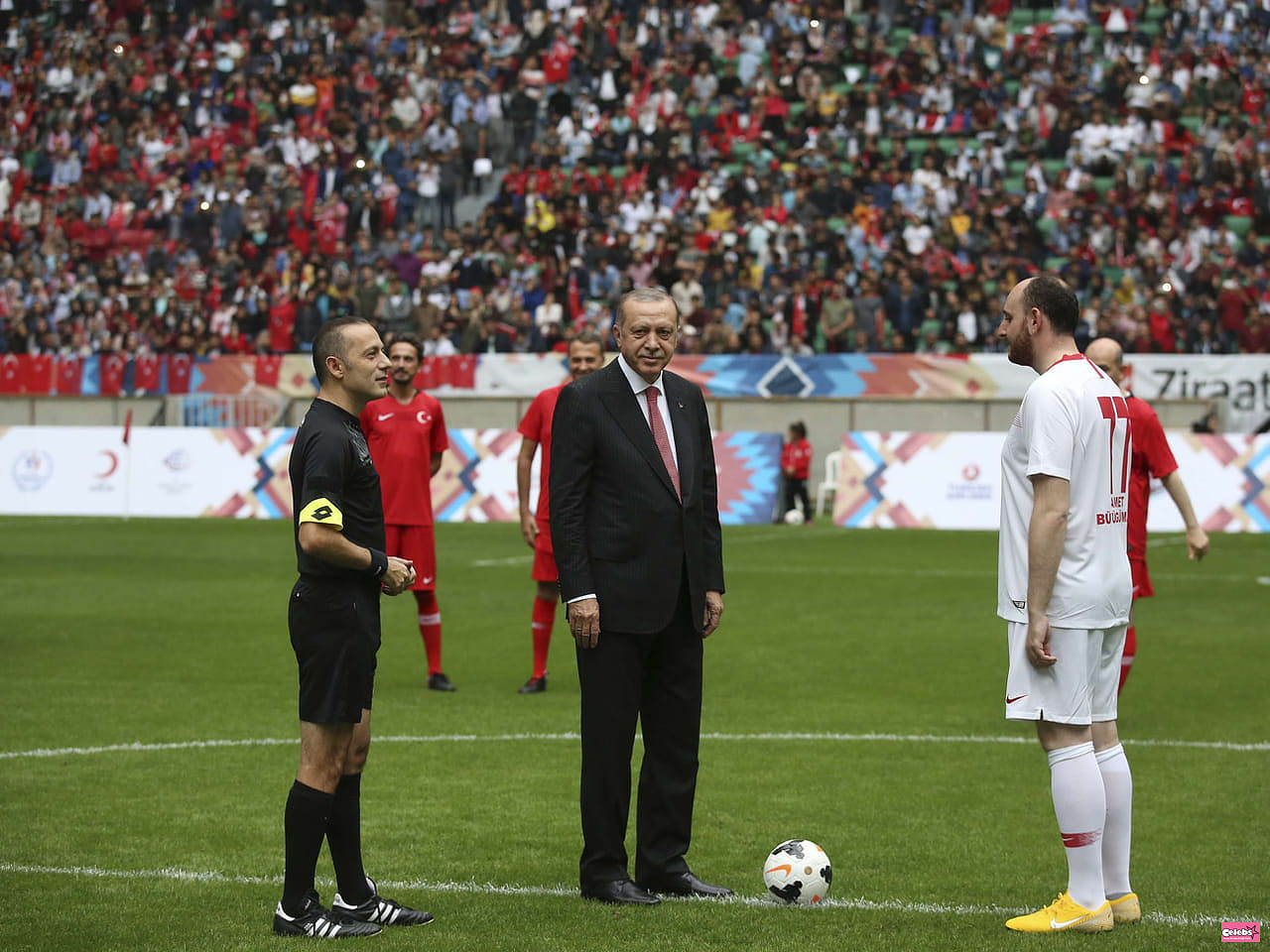
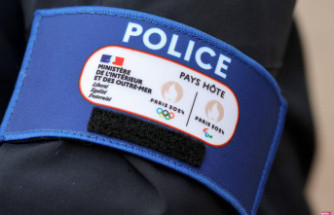
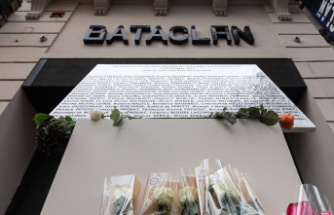
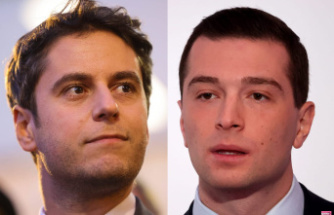
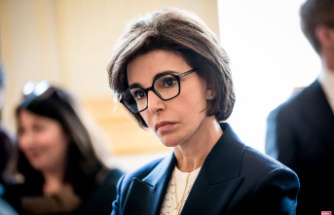
![Euromillions result (FDJ): the draw for Tuesday May 7, 2024 [LIVE]](https://www.celebsnet.com/images/resize/95/334x215/haberler/thumbs/2024/05/_00498.png)





